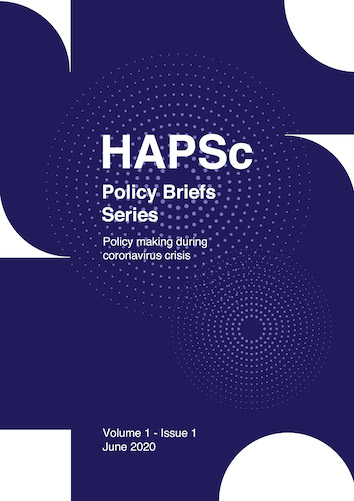Ethical Decision Making in Emergent Emergencies under a Veil of Ignorance
Résumé
In this paper we initially propose a scheme for the determination of threats due to the Covid19 pandemic, followed by appropriate response measures. In order to devise successful response actions, one should pay extreme care in identifying the actual threats posed and, as a matter of fact, prioritize them with respect to their severity on human life, societal risks, democratic operation of the institutions and the state and irreversible environmental impact.
But would everyone be benefited the same by these response measures? There lies the danger to be unfair of even ignoring socially disadvantaged groups and, thus, increasing social inequality gaps. And the new equilibrium attained runs the danger of being less stable than the old one, exhibiting degraded emergent behavior and capabilities for self-organization. In this case we would have achieved exactly the opposite of what we wished for, a system of lower resilience to perturbations.
Thus, we argue that the ethical element is the predominant factor that should determine all types of feedback responses and actions taken by decision-makers in all political, social, economic and environmental aspects during the process of returning to normality.
Towards this purpose, a method of determining the morality of response measures is required. A variation of the ‘Veil of Ignorance’ provides such a method, as introduced in this paper. It asks the decision-makers to make choices about social or moral issues related to the feedback responses to the pandemic and assumes that they have enough information to know the consequences of their possible decisions for everyone but would not know which person they will be themselves, in the new equilibrium. We believe that the proposed ethical framework will result to just and fair to all response measures.
Article Details
- Comment citer
-
Papanikolaou, V., Roussakis, Y., & Tzionas, P. (2020). Ethical Decision Making in Emergent Emergencies under a Veil of Ignorance. HAPSc Policy Briefs Series, 1(1), 46–52. https://doi.org/10.12681/hapscpbs.24947
- Rubrique
- Articles

Ce travail est disponible sous la licence Creative Commons Attribution 4.0 International .
Authors retain copyright and grant the journal right of first publication with the work simultaneously licensed under a Creative Commons Attribution License that allows others to share the work with an acknowledgement of the work's authorship and initial publication in this journal.



